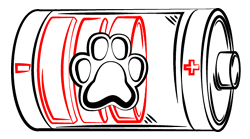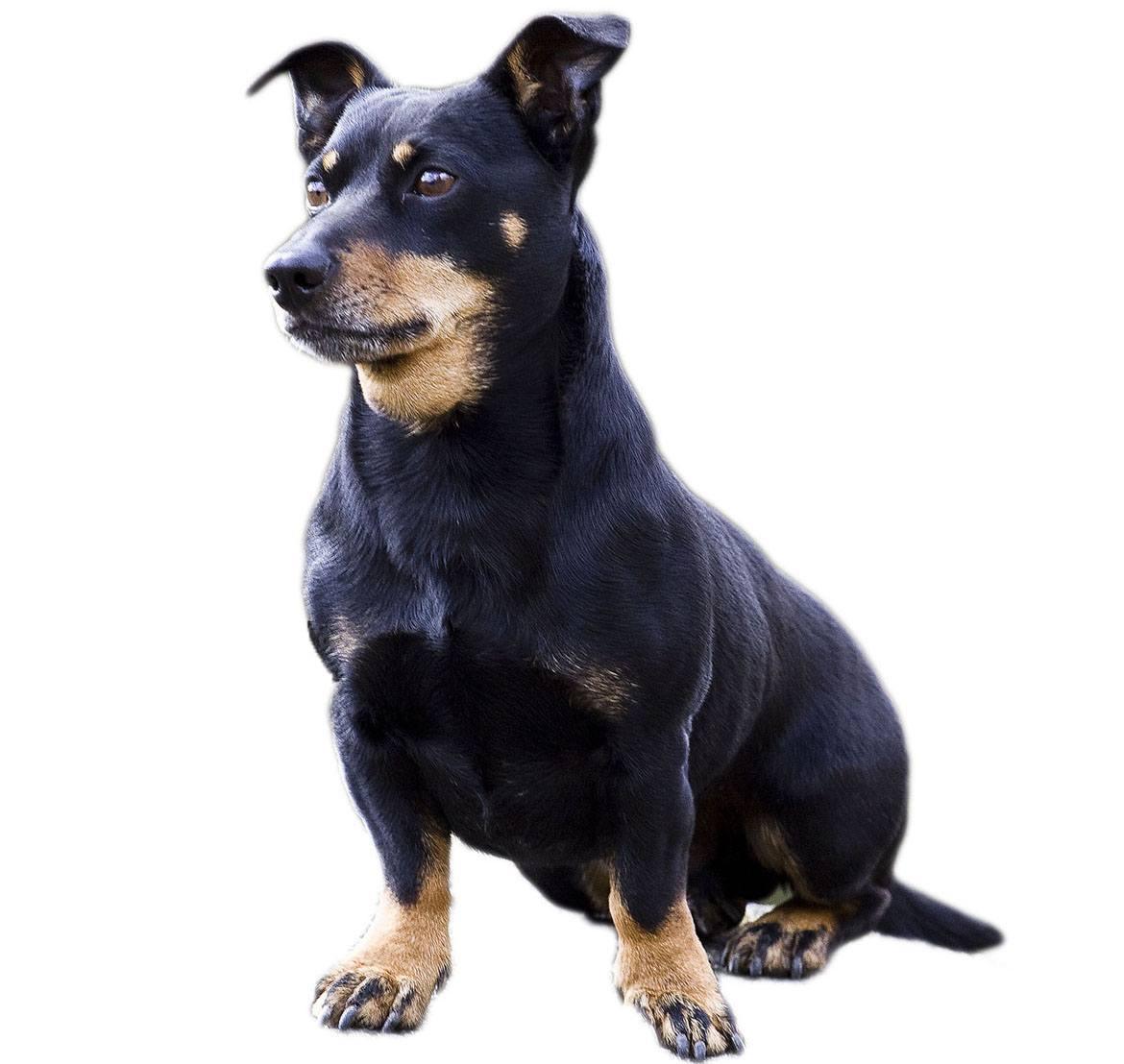
Paws ‘N’ Pups Quickview
Size
| Energy Level
| Trainability
| Paws ‘N’ Pups Rank
|
Characteristics
| Physical Characteristics: Height: 10-12” Weight: 6-13 lbs. Energy Level: Moderate – High | Colors: The American Kennel Club recognizes the Lancashire Heeler in the following colors:
|
Health & Longevity
Average Life Span: 12-15 years
The Lancashire Heeler is considered to be a healthy breed and does not have any major health conditions. While no significant conditions exist, there are a few secondary conditions that exist and you should be on the lookout for any symptoms related to them. These secondary conditions include primary lens luxation, Collie eye anomaly, persistent pupillary membranes, and patellar luxation.
Primary lens luxation can occur in the Lancashire Heeler and is an inherited condition that is often painful and can lead to your dog being entirely blind. The condition affects the zonular fibers in the eye and can cause the eye to dislocate as it is no longer held correctly in place.
Collie eye anomaly is another inherited eye disease which can occur in your Lancashire Heeler. This condition arises when the eyes develop incorrectly. The condition occurs in both eyes, and it is not uncommon for problems such as retinal detachment to occur.
Persistent pupillary membranes or PPM is another condition that can occur in your Lancashire Heeler which can occur when fetal tissue is left on the eyes after the birth of the puppy. This can cause defects in the iris or lead to cataracts.
Lastly, patellar luxation can occur, which is also known as a knee dislocation. If this occurs in your Lancashire Heeler, it can be painful for him or her. Patellar luxation is more commonly found in female dogs over males. This condition can cause lameness and weakness in the affected leg.
The Lancashire Heeler has a life expectancy of 12 to 15 years.
Temperament & Train-ability
The Lancashire Heeler is a wonderful dog for any home and is considered a small breed. This purebred dog can be described as intelligent, alert, loving, and friendly.
While the Lancashire Heeler is friendly and playful with those who are near to his heart, it is not uncommon for this breed to be cautious of strangers along with being protective.
Since this breed is known to herd and catch rabbits, it is extremely fast and strong. When kept inside a home and not used as a herder, the Lancashire Heeler adapts quickly and is gentle around young children.
It is important though to pay attention to your pup, as it is quite common for this breed to show their herding instincts and nip at the back of humans’ heels in an attempt to herd.
The Lancashire Heeler is not considered easy to train because of its herding background and you may find that your puppy is quite stubborn. While it’s not easy to train, it’s not impossible either, but it will require you to remain consistent and firm.
You need to show the Lancashire that you are the pack leader and dominant over them. If he or she realizes that you are not the pack leader, problems with training may arise.
This breed needs to be walked on a daily basis but can also adapt to apartment living. You will find that your Lancashire Heeler is quite active indoors and does not only lay around.
Grooming
The Lancashire Heeler is considered an easy dog to groom and does not require too much effort from you at all. You should brush your Lancashire Heeler’s coat two to three times per week.
You do not need to bathe your Lancashire Heeler on a regular schedule, instead you can bathe him or her when they get into something stinky or get dirty from playing outside.
You should check your puppy’s ears once a week and clean them with a cotton ball and warm water or an ear solution designed for dogs.
Your Lancashire Heeler needs to have his or her nails trimmed monthly or as needed to ensure that they do not grow too long. Nails that are long can become brittle and split or break, which is painful for your puppy.
Diet
Your Lancashire Heeler will eat approximately a half to one cup of food per day. You should split the feeding into two separate meals, one in the morning and one at night.
When choosing food for your Lancashire Heeler, keep in mind his or her age, activity level, and nutrient needs. You should avoid dog foods that are made with by-products or chemicals. The best type of food for this breed is one that is filled with wholesome ingredients such as chicken or red meat, rice, vegetables, and gravies.
You can feed your pup wet food occasionally, but you do not want to rely on it as the only source of food and nutrients. Wet food can lead to obesity as well as dental problems.
If you are unsure of what type of food to feed your Lancashire Heeler, speak with your veterinarian and ask what he or she recommends.
Looking for a Lancashire Heeler?
 Find A Lancashire Heeler Breeder |  Lancashire Heeler Puppies For Sale |  Adopt A Lancashire Heeler |
Cost
The cost of a Lancashire Heeler puppy can range from $800 to $1,300. While this breed is not often found in shelters, it is not impossible to locate one in a shelter or at a rescue. If you do, you can expect to pay an adoption fee of $150 to $300.
In addition to the cost of the puppy, you will also need to factor in the costs of annual veterinary checkups and vaccines, which can total anywhere between $300 and $600.
Paws ‘N’ Pups Ranking
Paws ‘N’ Pups ranks every breed out of 4 with 1 being easiest to integrate into your life and 4 being the toughest – The lower the ranking the better.
Ranking takes into account a few basic factors including cost, skill level needed, high vs low maintenance and how critical regular training is to success. The Lancashire Heeler is a good breed to own and is a loyal watch dog that will protect his or her family. This breed is often difficult to train though due to its background as a herder. It is also common for this breed to exhibit a strong will to try and herd his or her family by nipping the backs of your feet or ankles. This breed ranks a 3.
Breeds Similar To Lancashire Heeler
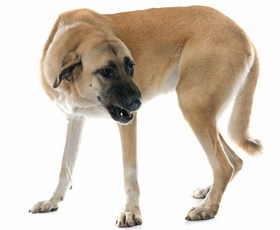 Anatolian Shepherd Dog | 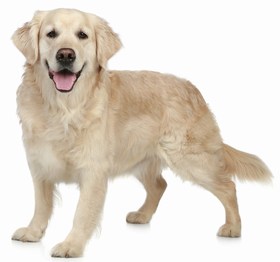 Labrador Retriever | 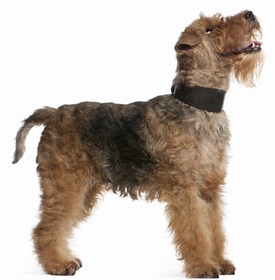 Welsh Terrier | 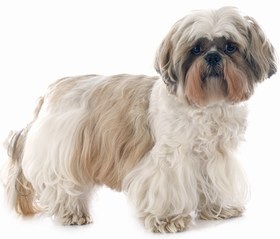 Shih Tzu |


